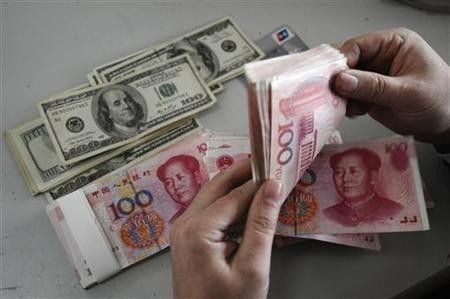China’s Lowering of Growth Target a Worrying Factor for Global Economy?

China lowering its growth target will have no direct impact on policy and also will not necessarily mean that it is less supportive to growth in the rest of the world, according to a report by Capital Economics.
Premier Wen Jiabao announced at the annual meeting of the National's People's Congress in Beijing last Monday that China would target an economic growth of 7.5 percent in 2012, which is clearly a decrease from the rate of growth of the last few years. However, going by the report of Capital Economics, the lower target does not signal that the government hopes to slow the pace of growth, as some have suggested.
The report mentions that the government has simply accepted that trend growth has slowed. The Five-Year Plan adopted a year ago implicitly acknowledged the same, with its 7 percent annual growth target for 2011-2015. Right now, with inflation no longer a major concern, the government is loosening policy even though the economy appears to be growing faster than the 7.5 percent target rate.
China’s real GDP growth fell from 14.2 percent in 2007 to 9.2 percent last year, but China still provided a boost to growth elsewhere throughout that period thanks to the rapid growth in its net imports states the report. A further rise in net imports is also expected this year.
Capital Economics is of the view that a slowdown in investment will hold back domestic demand growth and that the trade surplus will rebound as a result. China will start to drag on growth elsewhere. But the key factor would be the shifting balance of supply and demand in China rather than the rate at which the economy was expanding.
It was also reported that China had a trade deficit of $31.48 billion in February, according to data revealed by the General Administration of Customs. The imports for February came to a total of $146 billion, while exports were $114.5 billion. It is highly expected that China will once again lower the reserve requirement ratio for banks, meaning they will be able to lend more money.
Chief Asia Economist of Capital Economics Mark Williams has stated that shifts in the composition of growth will be particularly important for the commodity producers who have been the biggest beneficiaries of China’s rise over the last few years. Its demand for steel has expanded twice as fast as the economy over the past decade. Much the same is true for other industrial commodities. In 2007-2009, China used 4.5 times as much copper and 5.9 times as much aluminum to produce a unit of output as the world average, according to the World Bank.
Capital Economics has also reported that it is possible that China’s economy may continue to grow at 9 percent, as in 2011, and that the commodity intensity of demand may remain unchanged.
© Copyright IBTimes 2024. All rights reserved.




















